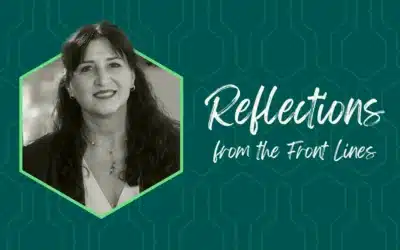It’s been 13 days since my last post. 16 1/2 months of loss of smell; false smells continue… I thought someone had warm chocolate chip cookies in the office… alas no. I’m growing more comfortable with asking others if I have body odor, so my definition of “boundaries” in the workplace is changing.
Speaking of boundaries, it’s generally not acceptable to determine and judge when another human being is not capable of caring for themselves. This is especially true for people who are not in our family or household.
The court process in Arizona to make a request for mental health treatment of another person is not necessarily complicated. And yet it’s a decision that as service providers, is not made lightly. Being able to demonstrate the criteria of danger to self, danger to others, gravely disabled, or persistently or acutely disabled due to a mental disorder needs to be done thoughtfully and factually. (And because I am not an expert and want to write this correctly, I’m using the azcourtcare.org web site for language.)
Once someone submits an application for the petition, a judge reviews the application and makes a decision about whether or not to order an evaluation. When done this way, it is an involuntary process.
With 1,800 or so individuals on and around the Human Services Campus who are unhoused, there is a constant number of people with mental illness. I don’t like stating numbers and percentages because it fluctuates and because the data we collect is self-reported. The numbers are not fool proof and 100% accurate. Many people are connected to care, have a case manager, and a regular clinic. Others may be living without a diagnosis, or with a lack of access to medications, a disconnection from their clinic.
At times some people are in visible distress. They may be loud, angry, sad, crying. They may yell at anyone or no one. They may talk to themselves. And sometimes people may exist in silence, never speaking to another human being. They move almost invisibly through the community.
When we serve people who are unhoused and unsheltered, we see behaviors of all kinds. The HSC Outreach Team engages with the nearly 800 unsheltered on a daily basis. They know people by name and often learn all sorts of details. They work together to support each person on their journey from the streets to a home. Sometimes this is quick, and sometimes it can take months and years.
And sometimes, we reach the point where we talk about the petition process.
Awhile back, I wrote about a man on the street corner outside of the HSC Administration Office. He is a reader. He likes orange Gatorade. He can be friendly, saying “thank you” and “bless you.” He can also be angry and silent, or he can be frowning and yelling. He also appeared to be continually losing weight. His pants becoming looser and looser. He has a visible mass that would indicate to my non-clinically trained brain that there is something unhealthy happening to his body. Fearing that he wasn’t going to survive, the HSC team worked with a clinical team to file a petition. This process actually was started twice. Through a series of events the gentleman went to a program, left the program, and was back on the streets again. Staff talked to him about what it would mean if a petition was submitted, and that it would lead to health care for him that would help him to feel better. And that it would help him get better to move into the housing he spoke about wanting. He indicated he understood.
The last few days he wasn’t in front of our office, as he had relocated a few streets away. Then today he was back right in front of my window. And today the police were contacted to pick him up and take him to care. The police were kind and patient. Our client was angry, yet didn’t fight the process. The HSC team was there to tell him what was going to happen, and that we will be with him each step of the way.
I watched pieces of this from my office window, in between meetings and Zoom calls. The team came in to talk with me afterwards. There were tears and hope. Tears for the struggle of this human being who has been lacking care and attention. Hope that now he is on a path to treatment and health, and ultimately housing.
We have a strong team full of people who do this day in and day out. Taking the brunt of yelling, cursing, praying, thanking, all of the emotions of the people they serve. Advocating and helping even when those they are fighting for may not have the energy to fight for themselves.
Now we wait and do what we can to support the reader from the corner, hoping and praying that he finds his way to health and housing. We will be there no matter what.



